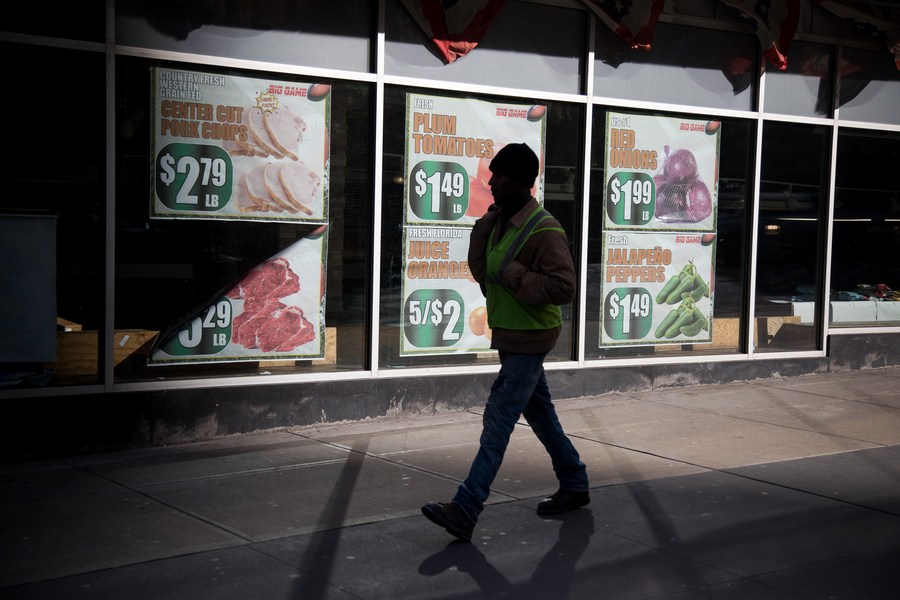Black Americans facing a harder financial time during pandemic


Black Americans are facing a more brutal economic fallout from the COVID-19 pandemic, such as gas, grocery and housing prices, finds a Washington Post-Ipsos poll of 1,248 non-Hispanic Black Americans from April 21 through May 2.
The fallout has hit Black Americans harder and is taking them longer to recover during an economic recession, according to an article published on the Washington Post website on Wednesday. 32 percent Blacks say there has been a "major financial stress" on their household because of recent price increases.
In the poll, 79 percent Black Americans say the affordability of gasoline in their community is "not so good" or "poor", and the percentages are 75 and 66 when it comes to the affordability of housing and groceries.
Black Americans' conditions are tougher due to disparities of pay and employment, according to a Pew Research Center poll of Black Americans conducted last autumn.
"The long-standing differences in economic experiences among Black Americans remain today," wrote Khadijah Edwards, a Pew research associate focusing on race and ethnicity research.
Before the outbreak of the pandemic, a typical White family had eight times the wealth of a typical Black family, according to the 2019 Federal Reserve Survey of Consumer Finances, and the economic fallout from the pandemic has made Black Americans' economic state more vulnerable.
"From Reconstruction to Jim Crow, to the present day, our economy has never worked fairly for Black Americans, or, really, for any American of color," Treasury Secretary Janet L. Yellen said earlier this year.
According to data from the US Department of Agriculture, 22 percent Black households experienced food insecurity in 2020, while the number is 11 percent for all US households.
Black households have less confidence in the US' economy, said to the poll, with only 25 percent rating the economy as good, a decline from 42 percent in early 2020.

































